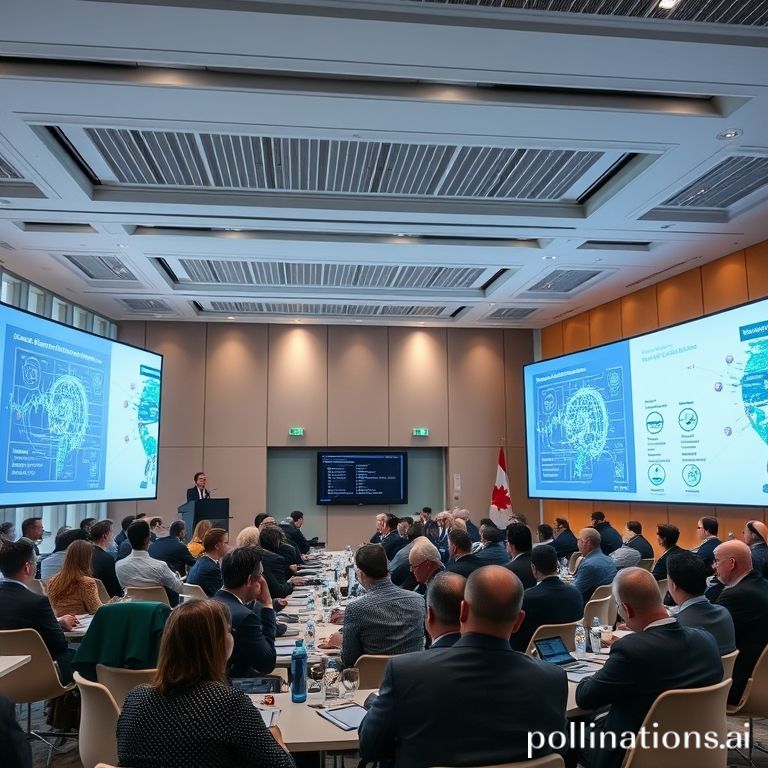
The dawn of a new era is upon us, characterized by unprecedented challenges and equally remarkable opportunities. As humanity navigates complex landscapes, from technological revolutions to environmental imperatives, the need for collective action has never been more pressing. This urgency is perfectly encapsulated by the recent kickoff of the **Global** AI Governance Summit in Geneva, a pivotal event designed to proactively tackle the intricate regulatory challenges anticipated by 2025. This summit isn’t just a meeting; it’s a testament to the fact that our most profound advancements and pressing issues demand a united, **Global** response. Indeed, the very fabric of our interconnected world necessitates a shared vision for progress.
In this spirit of collective advancement, we explore five essential **Global** breakthroughs that are not merely futuristic visions but active, ongoing endeavors shaping our present and future. These breakthroughs represent critical junctures where international collaboration, innovative thinking, and a shared commitment to human welfare are converging to create transformative change. From setting ethical guardrails for artificial intelligence to forging new paths in sustainable living and health, these initiatives underscore a fundamental truth: our greatest leaps forward are always **Global** in scope and impact.
The Urgency of Global Governance for AI
Artificial intelligence stands as perhaps the most transformative technology of our time, promising advancements across every sector imaginable. However, its rapid evolution also presents profound ethical, social, and economic dilemmas that transcend national borders. The **Global** community recognizes that without coordinated oversight, the risks associated with AI – from bias and privacy infringement to autonomous weapons and job displacement – could undermine its immense potential.
The **Global** AI Governance Summit in Geneva is a landmark event precisely because it addresses this pressing need for international cooperation. Bringing together policymakers, tech leaders, academics, and civil society representatives from around the world, the summit aims to lay the groundwork for a harmonized regulatory framework. This proactive approach is crucial, as individual nations attempting to regulate AI in isolation could lead to a fragmented landscape, hindering innovation and creating loopholes that exploit the very people these regulations are meant to protect.
Kicking Off the Global AI Governance Summit
The Geneva summit represents a critical step towards establishing a shared understanding of AI’s capabilities and limitations. Discussions are centered on developing common principles, standards, and best practices that can guide the responsible development and deployment of AI technologies. This includes addressing issues like data governance, algorithmic transparency, accountability mechanisms, and the protection of fundamental human rights in an AI-driven world. The goal is not to stifle innovation but to channel it responsibly, ensuring that AI serves humanity’s best interests.
One of the key challenges is bridging the gap between rapidly advancing technology and the slower pace of legislative processes. Experts are sharing insights into emerging AI applications, while legal scholars are exploring adaptive regulatory models that can keep pace. The very act of convening such a diverse **Global** body underscores a collective acknowledgment that AI’s impact is inherently transnational, demanding a **Global** solution.
Anticipating 2025 Global Regulatory Challenges
Looking ahead to 2025, the summit is specifically focused on anticipating and mitigating future regulatory hurdles. This includes preparing for the widespread adoption of generative AI, the increasing sophistication of autonomous systems, and the potential for AI to exacerbate existing societal inequalities. Participants are examining how to foster trust in AI systems, ensure fair competition, and prevent the weaponization of AI. The discussions aim to create a flexible framework that can adapt to unforeseen technological advancements, rather than becoming quickly outdated. This foresight is a **Global** imperative.
Moreover, the summit is exploring mechanisms for international collaboration on AI ethics and safety, potentially leading to the establishment of **Global** bodies or agreements. Such efforts are vital for addressing issues like cross-border data flows, the development of common AI safety standards, and the establishment of an early warning system for AI-related risks. The success of these discussions will largely determine humanity’s ability to harness AI’s power safely and equitably for the entire **Global** population.
Accelerating Global Climate Solutions
The climate crisis remains one of the most significant existential threats facing our planet, demanding urgent and coordinated **Global** action. While the scale of the challenge can feel overwhelming, there are profound breakthroughs happening worldwide in renewable energy, carbon capture, and sustainable practices. These innovations are not just incremental improvements; they represent fundamental shifts in how we power our societies and manage our environmental footprint, offering a tangible path toward a greener future. The collective commitment to a sustainable **Global** environment is stronger than ever.
From solar farms spanning vast deserts to offshore wind parks harnessing ocean breezes, the transition away from fossil fuels is gaining unprecedented momentum. This shift is driven by a combination of technological advancements, falling costs, and increasing **Global** political will. The investment in green technologies is skyrocketing, with both public and private sectors pouring resources into developing scalable and efficient alternatives. This **Global** effort is essential for achieving net-zero emissions.
Innovations in Renewable Energy
Breakthroughs in solar panel efficiency and energy storage solutions are making renewable energy more reliable and accessible than ever before. Perovskite solar cells, for instance, promise higher efficiency at lower costs, potentially revolutionizing the industry. Similarly, advancements in battery technology, including solid-state batteries and flow batteries, are addressing the intermittency challenge of renewables, allowing energy to be stored and released as needed. These innovations are crucial for a stable **Global** energy grid.
Beyond solar and wind, geothermal energy, tidal power, and advanced hydroelectric systems are also seeing renewed interest and investment. Countries are collaborating on large-scale renewable energy projects that cross borders, demonstrating a commitment to a shared, sustainable energy future. The development of smart grids, integrating diverse energy sources and optimizing distribution, is also a significant **Global** breakthrough, ensuring efficiency and resilience.
Global Carbon Capture Initiatives
While reducing emissions is paramount, the scientific community also recognizes the need to remove existing carbon dioxide from the atmosphere. **Global** carbon capture, utilization, and storage (CCUS) technologies are advancing rapidly. Direct Air Capture (DAC) plants are becoming more efficient at pulling CO2 directly from the air, while innovative methods are being explored to convert captured carbon into valuable products like fuels or building materials. These technologies offer a vital tool in the fight against climate change, complementing emission reduction efforts.
Furthermore, nature-based solutions, such as reforestation, afforestation, and regenerative agriculture, are being implemented on a **Global** scale. These initiatives not only sequester carbon but also restore biodiversity, improve soil health, and enhance ecosystem services. International partnerships are facilitating the transfer of knowledge and resources to implement these solutions in vulnerable regions, fostering a truly **Global** approach to environmental stewardship.
Advancing Global Health Resilience
The COVID-19 pandemic starkly illuminated the interconnectedness of **Global** health and the critical need for robust, equitable healthcare systems. In response, the world has witnessed remarkable breakthroughs in pandemic preparedness, vaccine development, and the fight against neglected tropical diseases. These efforts are building a more resilient **Global** health infrastructure, better equipped to handle future health crises and ensure well-being for all. A truly healthy world requires a **Global** perspective.
International collaboration in scientific research, data sharing, and resource mobilization has been instrumental in these advancements. Organizations like the World Health Organization (WHO) and Gavi, the Vaccine Alliance, play crucial roles in coordinating **Global** responses and ensuring equitable access to life-saving interventions. This collaborative spirit is a cornerstone of modern **Global** public health, driving progress against both emergent and persistent health threats.
Pandemic Preparedness and Global Vaccine Equity
Lessons learned from recent pandemics have spurred significant investment in **Global** pandemic preparedness. This includes strengthening surveillance systems to detect outbreaks early, developing rapid diagnostic tools, and establishing manufacturing capabilities for vaccines and therapeutics in diverse regions. The goal is to avoid the supply chain disruptions and inequities that characterized previous health emergencies, ensuring that all nations have the capacity to respond effectively. Ensuring **Global** vaccine equity is a primary objective.
Breakthroughs in mRNA vaccine technology, for example, have not only revolutionized our ability to respond to novel pathogens but also hold promise for treating other diseases, including cancer. Efforts are underway to transfer this technology to low- and middle-income countries, fostering **Global** self-sufficiency in vaccine production. This democratization of medical innovation is a powerful step towards achieving health equity on a **Global** scale.
Tackling Neglected Tropical Diseases
Beyond pandemic response, significant progress is being made in the long-term fight against Neglected Tropical Diseases (NTDs), which disproportionately affect the world’s poorest populations. New diagnostic tools, more effective treatments, and innovative delivery strategies are making a tangible difference in the lives of millions. Partnerships between pharmaceutical companies, NGOs, and governments are crucial in reaching remote communities and providing essential care. These diseases, though often overlooked, have a profound **Global** impact.
Integrated control programs that combine mass drug administration, vector control, and improved sanitation are proving highly effective. The development of new vaccines for diseases like dengue and malaria also represents monumental **Global** health breakthroughs. These sustained efforts demonstrate a commitment to addressing health disparities and ensuring that no one is left behind in the pursuit of **Global** well-being.
Fostering Global Digital Inclusion
In an increasingly digital world, access to the internet and digital literacy are no longer luxuries but fundamental necessities for economic participation, education, and social connection. The digital divide, which separates those with access to technology from those without, remains a significant **Global** challenge. However, concerted efforts are underway to bridge this gap, fostering **Global** digital inclusion and ensuring that the benefits of the digital age are accessible to everyone, everywhere. This is a critical step towards a more equitable **Global** society.
Governments, technology companies, and non-profit organizations are collaborating on innovative solutions to expand internet access to remote and underserved areas. This includes deploying new infrastructure, leveraging satellite technology, and developing affordable access models. Simultaneously, programs designed to enhance digital literacy are empowering individuals with the skills needed to navigate the online world safely and effectively. The goal is to create a truly connected **Global** community.
Expanding Internet Access Globally
Technological advancements, such as low-earth orbit (LEO) satellite constellations, are dramatically lowering the cost and increasing the reach of internet connectivity. These systems are providing high-speed internet to regions that were previously impossible or prohibitively expensive to connect via traditional infrastructure. This is a game-changer for rural communities and developing nations, opening up new avenues for education, commerce, and communication. The impact on **Global** development is immense.
Beyond satellites, community networks, public Wi-Fi initiatives, and innovative business models are also playing a crucial role. Governments are investing in fiber optic networks and incentivizing private sector participation to extend broadband access. These diverse approaches are critical to achieving universal internet access, ensuring that every individual can participate in the **Global** digital economy and society. The push for **Global** connectivity is relentless.
Digital Literacy Programs for a Global Audience
Access without skills is meaningless. Therefore, **Global** digital literacy programs are essential for empowering individuals to utilize digital tools effectively and safely. These initiatives teach fundamental computer skills, internet navigation, online safety, and critical thinking to discern reliable information from misinformation. Such programs are often tailored to local contexts, addressing specific needs and cultural nuances of diverse communities.
From online learning platforms providing free courses to grassroots initiatives teaching coding in local languages, the efforts are multifaceted. Partnerships between educational institutions, tech companies, and NGOs are creating scalable solutions that reach millions. By fostering digital literacy, these programs are not only bridging the digital divide but also promoting economic empowerment and social mobility across the **Global** landscape. This is a fundamental **Global** right.
Strengthening Global Economic Cooperation
The world’s economies are more interconnected than ever, making **Global** economic cooperation indispensable for shared prosperity and stability. In an era of increasing geopolitical tensions and supply chain vulnerabilities, breakthroughs in reforming trade agreements, fostering collaborative innovation, and building resilient economic partnerships are vital. These efforts aim to create a more equitable and robust **Global** economic system that benefits all nations, preventing crises and promoting sustainable growth. A stable **Global** economy is a shared responsibility.
International organizations like the World Trade Organization (WTO), the International Monetary Fund (IMF), and various regional blocs are continuously working to facilitate trade, stabilize financial markets, and support developing economies. These institutions are adapting to new challenges, from digital trade to climate-related financial risks, demonstrating a commitment to evolving with the **Global** economic landscape. The pursuit of **Global** economic harmony is ongoing.
Reforming Global Trade Agreements
The landscape of **Global** trade is undergoing significant transformation, driven by technological change, environmental concerns, and shifting geopolitical dynamics. Breakthroughs are occurring in the modernization of trade agreements to address new realities, such as digital services, intellectual property in AI, and climate-friendly trade policies. The aim is to create more inclusive and sustainable trade frameworks that support economic development while upholding environmental and labor standards. This requires a **Global** consensus.
Discussions are focused on reducing trade barriers, promoting fair competition, and ensuring that the benefits of **Global** trade are more widely distributed. Efforts to strengthen multilateral trade systems and resolve disputes peacefully are crucial for maintaining stability. Regional trade agreements are also evolving, often serving as incubators for new trade policies that can later be adopted on a broader **Global** scale, fostering deeper economic integration.
Collaborative Innovation for Global Prosperity
Innovation is a powerful engine for economic growth, and **Global** collaboration in research and development is accelerating breakthroughs across industries. International partnerships between universities, research institutions, and corporations are leading to shared advancements in areas like biotechnology, advanced manufacturing, and sustainable technologies. This collaborative spirit leverages diverse expertise and resources, pushing the boundaries of what’s possible and benefiting the entire **Global** community.
Furthermore, initiatives promoting cross-border investment in startups and small and medium-sized enterprises (SMEs) are fostering innovation from the ground up. Programs that facilitate the transfer of technology and knowledge to developing nations are also key to ensuring that the benefits of innovation are broadly shared. By working together, the **Global** community can unlock new avenues for economic prosperity and address shared challenges more effectively, solidifying a truly **Global** impact.
Conclusion: A Global Imperative for Progress
The “5 Essential **Global** Breakthroughs Now” underscore a fundamental truth about our interconnected world: the most significant challenges and opportunities demand a united, **Global** response. From the critical discussions at the **Global** AI Governance Summit in Geneva, aiming to shape the future of artificial intelligence, to the accelerating pace of climate solutions, health resilience, digital inclusion, and economic cooperation, humanity is making profound strides. These breakthroughs are not isolated events but interwoven threads in the tapestry of **Global** progress, each reinforcing the others.
The commitment to **Global** collaboration, ethical governance, and sustainable development is more vital than ever. As we look towards 2025 and beyond, the collective efforts highlighted here demonstrate a powerful capacity for innovation and shared responsibility. It is through these **Global** endeavors that we can build a future that is not only technologically advanced but also equitable, healthy, and sustainable for every individual on our planet. Let us continue to engage, advocate, and participate in these **Global** conversations and initiatives. What role will you play in shaping our shared **Global** future? Share your thoughts and join the dialogue on these critical **Global** breakthroughs.


